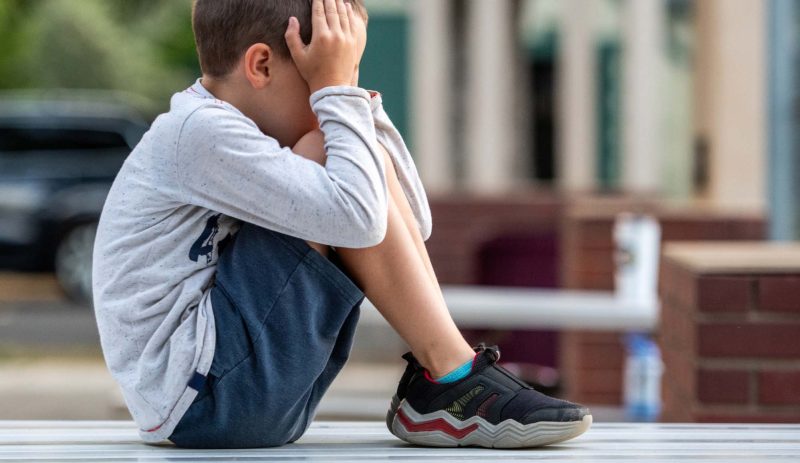DUBOIS – Children can become sad or angry when they lose a game or simply do not get their own way — that is normal behavior. When a child or teen cannot calm down, are uncontrollable or may be in danger of hurting themselves or others, they are in a crisis. It is important for parents/guardians, teachers, coaches and other adults with whom they regularly interact recognize these behavioral health issues so they can assist them in getting necessary help.
“It is normal and developmentally appropriate to have sporadic fluctuations in mood and experience acute stress-related challenges,” explained Arianne Iorfido, MA, LPC, Service Line Director of Behavioral Health Services, Penn Highlands Healthcare. “Well-adapted children demonstrate effective coping skills when faced with typical stressors.”
According to the Centers for Disease Control and Prevention, behavioral health issues among children are described as “serious changes in the way children typically learn, behave, or handle their emotions, which cause distress and problems getting through the day. Many children occasionally experience fears and worries or display disruptive behaviors. If symptoms are serious and persistent and interfere with school, home, or play activities, the child may be diagnosed with a mental disorder.”
Boys and girls of all ages living in all areas of the U.S., from all ethnic groups, experience behavioral health issues. The National Research Council and Institute of Medicine reports that up to 1 in 5 children experience a behavioral health issue. The most common mental disorders that can be diagnosed in childhood include anxiety, autism, depression, attention deficit/hyperactivity disorder (ADHD), eating disorders and behavioral disorders.
“It varies as to when symptoms appear,” said Arianne. “Some children display behavioral health concerns in early childhood, while for others, symptoms may not manifest until the teenage years.”
Symptoms
There are many signs that a child or teen may have a behavioral health disorder. Some common signs include:
- Sadness that lasts two or more weeks
- Changes in social behavior such as avoiding interaction with others
- Talking about hurting oneself or others
- Talking about death
- Displaying uncontrollable outbursts
- Changes in moods, behaviors or personality
- Changes in eating habits
- Loss of weight
- Trouble sleeping
- Frequent headaches and stomachaches
- Trouble concentrating
- Poor performance in school
- Missing school
Diagnosis
If a parent suspects that their child is experiencing a behavioral health issue, they should first consult with their healthcare provider. It may take time to diagnose behavioral health issues in younger children because they may have difficulty articulating how they feel.
As part of the diagnosis, the healthcare professional may suggest that the child see a specialist such as a psychologist, psychiatrist, clinical social worker or other behavioral health practitioner. They will talk with the parent(s) about the child’s symptoms and school history; conduct a physical exam; and complete a medical history. The child may also undergo mental health tests.
Treatments
There are two widely used treatments for children and teens who experience behavioral health disorders — medication and psychotherapy. Medications could include antidepressants, anti-anxiety medicine, antipsychotic drugs or stimulants. Psychotherapy, also known as talk therapy or behavior therapy, involves talking with a mental health professional. For younger children, it may include activities or games to encourage them to talk about or show their feelings. In older children and teens, during psychotherapy they talk about their thoughts and feelings and learn new behaviors and coping skills.
It is important to note that parents/guardians play a major role in helping their child cope with behavioral health issues.
“One of the first steps to treatment is recognizing that the child needs help,” said Arianne.
Treating mental health concerns in children and teens requires specialized training. Penn Highlands Healthcare offers pediatric and adolescent behavioral health experts, including psychiatrists, psychologists, physician assistants, licensed clinical social workers and licensed professional counselors.
At the Stern Center for Behavioral Health, in DuBois, Pa., Penn Highlands Healthcare provides adolescents and children with a variety of outpatient counseling, therapies and assessments for mild to severe behavioral health conditions including ADD, ADHD, anxiety, autism, eating disorders, bipolar disorder, stress, depression and developmental problems. For children and teens ages 5 to 18 whose behavioral health disorder requires more intensive care, the Stern Center provides inpatient behavioral health services 24/7. For more information, visit www.phhealthcare.org/teen/.
